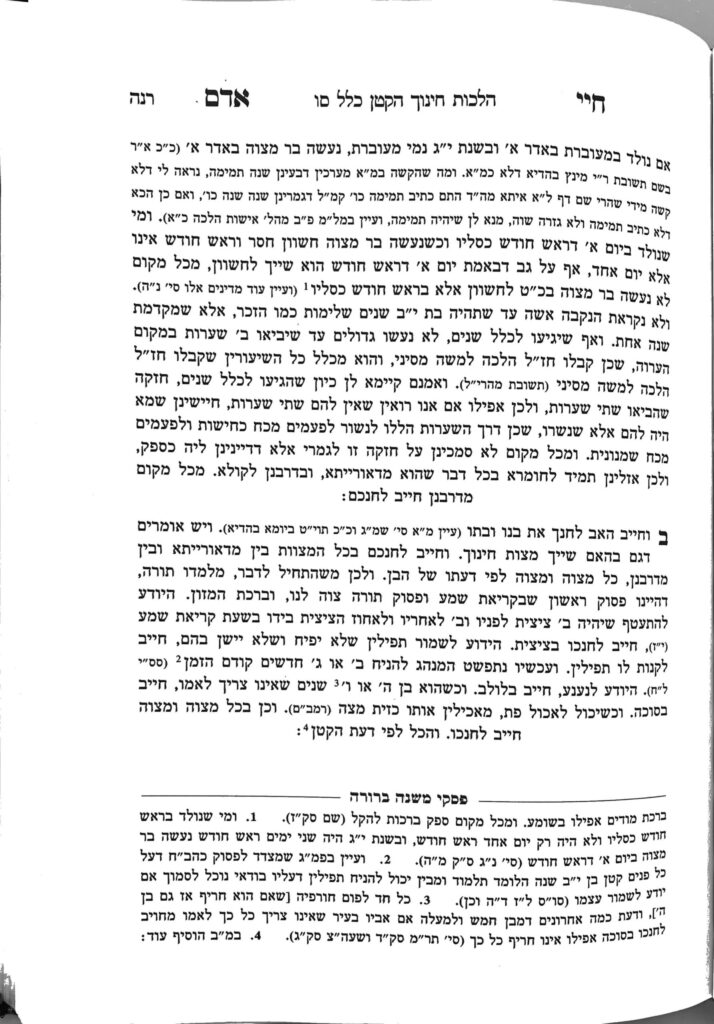We have finished siman 2, in which the Chayei Adam listed some examples of the proper age to begin chinuch in specific mitzvos. We have discussed the examples of lulav, talmud torah, birchas hamazon and brachos in general. Today, we will discuss kiddush.
The Mishnah Berurah points out that the age for brachos is six or seven, depending on the child. On Friday nights, many shuls follow the minhag mentioned in siman 269 regarding kiddush in shul. If there are guests eating in the shul, the kiddush is for them, and therefore is not a bracha levatala. If there are no guests, the Shulchan Aruch writes to give the kiddush to a katan to avoid the kiddush being a bracha levatala.
Regarding the age of the child, the Magen Avraham quotes some poskim who hold that the child should be under the age of chinuch. Once a child reaches the age of chinuch, they arguably require kiddush b’makom seudah in the same manner as an adult. However, the Magen Avraham himself argues. He holds that giving the kiddush to a child under the age of chinuch does not alleviate the issue of bracha levatala. If a child has a chiyuv bracha, even if that chiyuv is only due to chinuch, the father (or another adult) can recite a bracha on their behalf. However, if the child has no chiyuv chinuch, if one recites a bracha only for their sake, it is a bracha levatala. Therefore, the Magen Avraham concludes that shuls should use a child above the age of chinuch so that the person making kiddush does not recite a bracha levatala.
However, the question of the other poskim now applies to the Magen Avraham: how can a child who already has a chiyuv chinuch drink the kiddush if it is not kiddush b’makom seudah? The Magen Avraham explains that although an adult is not allowed to actively feed a child issur, over here, the food is not assur, but rather the point in time at which it is being consumed is a problem. However, Chazal never instituted an issur on that timeframe for children (i.e., they did not institute a requirement of kiddush b’makom seudah), due to the child’s need to eat and drink for their health. The Magen Avraham is the accepted opinion behind this practice.
It comes out that the child is not being yotzei kiddush through the adult making kiddush in shul, because, even if the child is allowed to eat at this juncture, they certainly are not yotzei kiddush b’makom seudah (since they do not have a seudah in the shul). If so, the adult making kiddush is not being yotzei the child in kiddush, but just in the bracha of hagafen. Therefore, Rav Shlomo Zalman Auerbach ztl suggests that the child should only answer amen to the bracha of hagafen, and not to the second bracha of mekadeish hashabbos, since it is a hefsek between the hagafen and the child drinking. Nonetheless, the minhag appears to be for the child to answer amen, due to other opinions which allow for it.
Summary
If a shul has the minhag to recite kiddush on Friday night, if there are no guests, the kiddush should be given to a child above the age of chinuch.



